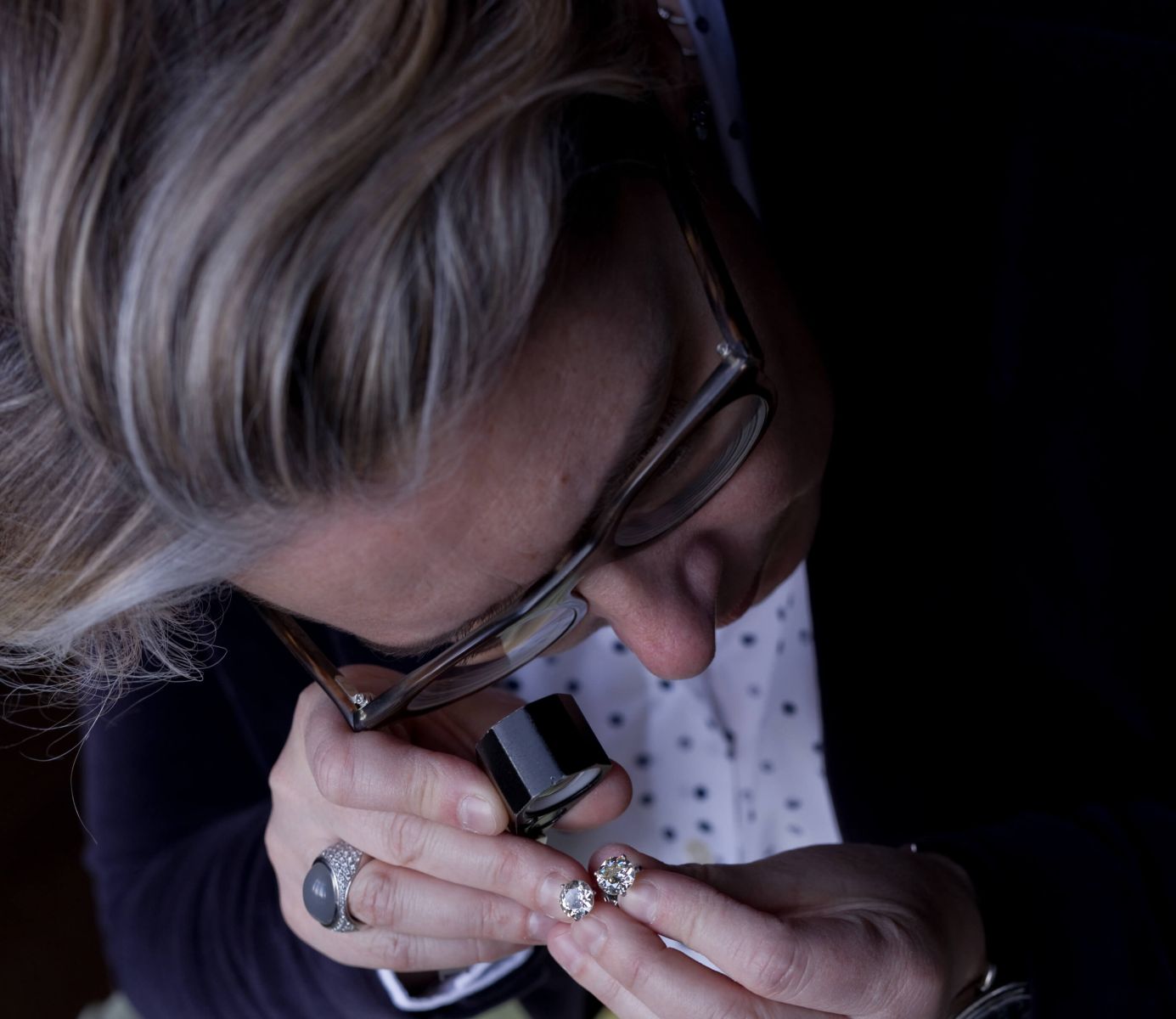In this short article, Victoria Stockwell looks at why it can be tricky to find a qualified jewellery valuer to undertake your insurance valuation.
So why exactly are there so few jewellery valuers in Scotland? What has happened, where have they all gone, or were they never there in the first place? It seems like it may be the latter. The phenomenal amount of work and number of years it takes to become anywhere close to becoming a valuer is mind boggling and a bit of an entry barrier to say the least. Lets discuss what it actually takes to become a fully qualified registered valuer.
How to begin?
Firstly, just erase your free time for the next several years or so, pick up your pen, a notebook and get started, easy peasy…or perhaps not! The time it takes to become a registered jewellery valuer can vary depending on the educational path chosen and your individual circumstances. A minimum of five years in the jewellery industry is a pre-requisite followed by obtaining the relevant qualifications in gemmology, completing appraisal courses, gaining hands on experience, and meeting any registration requirements imposed by professional organizations or authorities.
Soft Skills Needed
In addition to the qualifications and experience, a good valuer should have strong attention to detail, stay updated on market trends and have excellent research skills to accurately assess the value of different pieces. Continuing education to stay abreast of industry changes is key as well. Adherence to ethical standards are essential as trust is absolutely imperative in the jewellery industry, particularly when you think of how personal items of jewellery can be and the value of what you are handling. Effective communication skills are also important for conveying appraisal details to clients as well as sensitivity when you may be doing a valuation for Inheritance Tax Purposes - pieces of jewellery hold strong emotional connections to those we have loved and lost.
What was Clare Blatherwicks path to becoming a valuer?
- Night school: Clare’s specific route to become a valuer began at night school in London with classes for eighteen months at the prestigious Gemmological Association of Great Britain (Gem-A). This resulted in her becoming a qualified Gemmologist, signified by the postnominals ‘FGA’ (Fellowship of the Gemmological Association).
- More school: The FGA was swiftly followed by another year of studying seriously sparkly stones; diamonds. Clare became a qualified diamond grader and gained more letters after her name; 'DGA' (Diamond Member of the Gemmological Association). If you’re thinking of writing her a letter please do leave a lot of space on that top line as her post nominals get even longer…yes, more studying and more accreditations were yet to be gained after this.
- Further studying: The next part of her continued education was another year of long distance learning to attain a certificate in appraisal theory (CAT) with the National Association of Jewellers.
The studying continues...
I was quite astounded to learn that Clare’s credential go even deeper than that, she is what is known as a Specialist member of the JVA (Jewellery Valuers Association) because of her experience in auction houses and with antique jewellery. Once qualified, to maintain your position as a registered valuer, it is essential to undertake Continual Professional Development, undertaking a series of seminars and workshops. And you must provide proof of that. In essence, to become a valuer requires a very particular set of specialised skills, skills that are acquired over a very long career.

What does she do now?
Apart from enjoying a well-earned cup of tea now and then, Clare offers a highly personal valuation service where you can have your jewellery or watch collection valued at your home, bank or office. Sometimes it’s nice just to stay where you are and not have to travel. She’s offers a clear, simple pricing structure - and doesn’t base her fee on the value of the collection.
This blog may help you understand why Clare Blatherwick is one of the few registered valuers in Scotland, of which there are only six. The entry barriers such as specific educational requirements and certification processes contribute to a limited number of registered valuers. Clare has done hundreds of valuations and is one of the few preferred valuers for leading insurers. Her word is not only trusted but proven.
If you would like to get your jewellery valued please do get in touch with us, If you are interested to understand more about either why, or how often you should have your jewellery and watches valued, have a look at the blog posts below:
Why and how often do I need to have my jewellery valuation updated?
An update as to why you need an insurance valuation and how Covid may have had an impact
